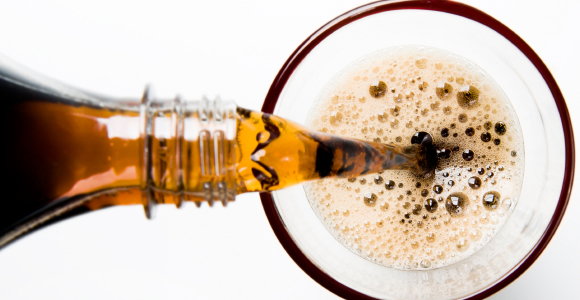There are a plethora of seemingly-miraculous foods that promise everything from limitless energy to curing the common cold, but the latest fad is a soda that claims to help you blast away fat. Pepsi's partner in Japan, Suntory Holdings Limited, has unveiled a fat-burning soda called "Pepsi Special," which the company claims in a news release helps you in your weight-loss efforts by "suppressing the absorption of fat." The news release also reports that this new soda inhibits the typical spike in triglycerides that occurs after consuming a fatty meal.
How Does it Claim to Work?
But what is in this special soda that makes it so, well, special? Pepsi Special contains an ingredient called dextrin, which is a soluble dietary fiber (a type of fiber that dissolves in liquids). Dextrin is also commonly found in certain fiber supplements, including Benefiber. However, the science on dextrin doesn't really support the claim that it can block fat absorption. In fact, the studies that suggest any fat-blocking potential weren't even conducted on humans--they were performed on rats. The study found that rats that were fed a diet of both fat and dextrin absorbed a smaller amount of fat than the rats that were given no dextrin. But results of animal studies can't be extrapolated to humans.
Actually, according to Harvard School of Public Health, the few studies that have been performed on humans who consumed dextrin found that those participants experienced gas, bloating, and painful stomach aches. Additionally, no long-term studies involving human consumption of dextrin have been done.
When Will America Get Pepsi Special?
So will you soon be seeing Pepsi Special on store shelves near you? No so fast. Luckily, the Food and Drug Administration (FDA) discourages adding nutrients, especially those not well-studied for efficacy and safety, to foods. If Pepsi does intend to bring this deceptive product to the U.S. market, it will likely be met with pushback, and rightfully so. As a dietitian, I'm appalled that a product like this even exists, although I can't say that I'm shocked due to the no-effort, quick-fix mentality many have regarding weight-loss. Thinking that it's OK to add nutrients to unhealthy foods to make them seem healthy is ludicrous. Not to say that an occasional soda as a treat is unhealthy, but these beverages are commonly being consumed on a daily basis, and in portion sizes that are extremely large.
Soda companies have been trying for years to make unsubstantiated health claims about their products, and they're finally getting called out for it. Several highly-visible brands have recently been sued over claims their products confer some sort of health benefit, touting the product is full of antioxidants or other bogus boasts.
Let's not be fooled by so-called fat-fighting sodas, or any other silly marketing schemes aiming to cash in on our search for health and wellness. Want to make sure you're getting enough fiber to help fight flab? Get back to the basics--eat a well-balanced diet that includes plenty of fruits, vegetables, whole-grains, legumes, nuts, and seeds. Drink plenty of fluids and do some type of physical activity every day.
Kari Hartel, RD, LD is a Registered, Licensed Dietitian and freelance writer based out of St. Louis, MO. Kari is passionate about nutrition education and the prevention of chronic disease through a healthy diet and active lifestyle. Kari holds a Bachelor of Science in Dietetics from Southeast Missouri State University and is committed to helping people lead healthy lives. She completed a yearlong dietetic internship at OSF St. Francis Medical Center in Peoria, IL, where she worked with a multitude of clients and patients with complicated diagnoses. She planned, marketed, and implemented nutrition education programs and cooking demonstrations for the general public as well as for special populations, including patients with cancer, heart disease, diabetes, Alzheimer's disease, obesity, and school-aged children. Contact Kari at [email protected].



